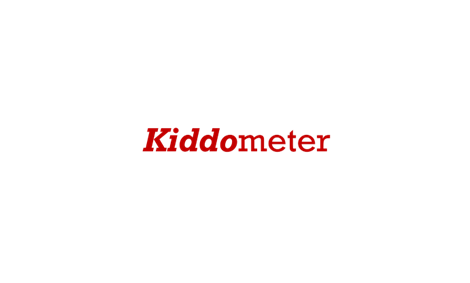Books: Fun coding books for kids
What are some fun coding books for kids? Surprisingly, children with a penchant for patterns and a flair for mathematics may begin delving into the world of coding even before tackling their first chapter book. Research suggests that kickstarting a child’s coding journey offers substantial benefits by fostering higher-order thinking and honing algorithmic problem-solving skills. Studies show that kindergartners engaged in programming environments enjoyed learning activities and developed mathematical concepts, problem-solving abilities, and social skills. For middle schoolers, coding games were found to enhance their grasp of computational learning, refining their ability to discern solvable problems. The creative and logical nature of programming uniquely positions children to employ innovative thinking in solving complex problems, seamlessly integrating critical thinking and logic into their creative processes.

Author: Jason R. Briggs (Published: 2015) “Python for Kids” by Jason R. Briggs stands out as a guide to the Python programming language, offering a playful introduction to coding. The book maintains an irreverent tone throughout, ensuring that complex software coding concepts are presented in a digestible and visually appealing manner for young Python enthusiasts.
















Author: Sterling Children’s Group (Published: 2018) “HTML for Babies” by Sterling Children’s Group introduces young readers to HTML, a foundational component of the World Wide Web. Utilizing shapes and colors as analogs for basic HTML code, this tablet-based programming book provides an early introduction to the building blocks of the digital realm.
















Author: John Woodcock (Published: 2017) “Coding Projects in Scratch” by John Woodcock provides step-by-step instructions for 18 creative projects, enabling kids to code characters, animations, and sound effects. The book encourages experimentation and creativity within the Scratch coding environment.
















Author: DK (Published: Various) For hands-on learners, DK offers interactive coding workbooks such as “Coding in Scratch: Games Workbook” and “Coding in Scratch: Projects Workbook.” These workbooks provide a collection of exercises and projects designed to reinforce key coding concepts in a tangible and engaging manner.
















Author: Max Wainewright (Published: 2019) Max Wainewright’s “25 Scratch 3 Games for Kids” employs colorful graphics and straightforward explanations to teach young readers the fundamentals of Scratch 3, a kid-friendly programming language developed by the MIT Media Lab. The book encourages hands-on learning by prompting kids to create fully-fledged games, including mazes and two-player games.
















Author: Linda Liukas (Published: 2014) Linda Liukas’ “Hello Ruby: Adventures in Coding” serves as a unique blend of a picture book and activity guide, guiding young children through foundational programming ideas. The book introduces Ruby, a determined character who tackles puzzles, befriends various creatures, and encourages readers to apply computational thinking to problem-solving.
















Author: Rosie Dickins (Published: 2017) Rosie Dickins’ “Lift-the-Flap Computers and Coding” engages kids in exploring how computers work by lifting flaps to reveal fundamental knowledge. The book covers principles of good code, algorithms, and simple functions through interactive elements like treasure hunts, games, and puzzles.
















Author: Sam Taylor (Published: 2020) “The Coding Workbook” by Sam Taylor takes a unique approach, allowing kids to build a website using HTML and CSS with just a pencil and occasional eraser—no screens required. This interactive workbook introduces children to coding languages and web development concepts in a tactile and engaging way.
















Author: Claudia Mills, illustrated by Grace Zong (Published: 2021) Claudia Mills’ “Lucy Lopez: Coding Star” weaves a fictional narrative around Lucy’s discovery of her coding talent as she joins an after-school club. Illustrated by Grace Zong, the book explores themes of passion, collaboration, and overcoming challenges in the world of coding.
















Author: DK (Published: 2019) “DK Findout! Coding” by DK is a trivia-filled exploration of coding and its pervasive influence on our daily lives. Geared towards fact-loving kids, the book delves into the history, inventions, and coding processes behind everyday items, unraveling the mysteries of the digital world.
















Author: DK (Published: 2016) Ideal for new coders, “DK Workbooks: Computer Coding” explains how code works and teaches readers to create simple programs step-by-step. Each chapter includes written quizzes and a visually engaging glossary covering key terms. After completing the workbook, readers gain the ability to craft applications, animations, and games in Python.
















Authors: Marina Umaschi Bers and Amanda Sullivan (Published: 2016) Marina Umaschi Bers and Amanda Sullivan present “ScratchJr Coding Cards,” a versatile deck that introduces young children to coding in ScratchJr, a simplified coding program. With 75 cards, the deck encourages creativity, problem-solving, and a joyful learning experience for children as they embark on their coding journey.
















Author: Ruth Spiro, illustrated by Teresa Martínez (Published: 2020) Ruth Spiro’s “How to Explain Coding to a Grown-Up” is an educational picture book designed to demystify the basics of computer programming for readers of all ages. With illustrations by Teresa Martínez, the book takes a lighthearted and humorous approach to make coding accessible to everyone.
















Author: David Whitney, illustrated by Duncan Beedie (Published: 2022) “Get Coding 2” by David Whitney guides tweens through coding classic computer games using HTML and JavaScript. The book empowers young learners to understand the fundamentals of these programming languages and apply their skills to build and customize games.
















Author: Kiki Prottsman (Published: 2018) Kiki Prottsman’s “My First Coding Book” offers a screen-free introduction to essential programming concepts, making it an excellent resource for children. Through interactive elements like puzzles and games, this sturdy board book provides a hands-on experience, fostering a foundational understanding of coding principles in young minds.

